Are you considering a change in your academic path? Switching your major can be a big step, but it can also bring exciting new opportunities that align with your passions and career goals. Crafting a well-structured letter to request this change is essential, as it demonstrates your commitment and thoughtfulness about your decision. Ready to learn how to draft the perfect letter for your major change request?

Polite and formal salutation
To formally request a change of major at your academic institution, begin with a respectful greeting. Address the appropriate academic advisor, department head, or university official. For example: "Dear [Title] [Last Name]," For instance, if addressing a professor named John Smith, the salutation would be: "Dear Professor Smith," This sets a polite and professional tone for your request, ensuring clarity in communication.
Clear subject line or heading
A change of major request involves an official appeal to an academic institution to switch one's area of study. The appeal typically includes key details such as the student's current major, the desired new major, and relevant academic performance metrics like GPA. A clear subject line or heading facilitates swift identification of the request, enhancing communication with departments such as the Registrar's Office or Academic Advising. Regulations may differ by institution regarding the process, hence understanding specific policies is crucial for students contemplating a major transition.
Current major and desired new major
Transitioning from a major in Business Administration to a new major in Environmental Science can significantly reshape an academic trajectory. Business Administration emphasizes financial principles and management strategies, providing a foundation for various industries, yet Environmental Science focuses on ecological systems and sustainable practices, addressing pressing environmental challenges. The shift to Environmental Science can enhance awareness of climate change, conservation efforts, and resource management, equipping students with the knowledge to contribute to sustainability initiatives. Engaging with interdisciplinary coursework may involve subjects like ecology, environmental policy, and biodiversity, fostering a deeper understanding of human impact on the Earth and preparing students for careers in environmental advocacy, research, or policy-making.
Reason for change request
Students often consider changing majors due to evolving interests or career goals. For instance, an individual initially pursuing a degree in business may discover a passion for environmental science through a related elective course. This newfound interest could stem from attending an impactful seminar at a notable conference, such as the Global Climate Change Summit. Witnessing experts discuss sustainable practices may inspire a desire to contribute to ecological solutions. Furthermore, understanding the potential for job opportunities in green technology sectors may solidify the decision, highlighting the need to adapt educational paths for future workforce demands and personal satisfaction.
Gratitude and closing signature
The process of changing an academic major often involves expressing gratitude towards faculty and staff who support students' educational journeys. A common approach includes acknowledging the guidance received throughout the current major, highlighting the specific influences or experiences that have motivated the decision to switch fields. For closing, a polite and professional signature is essential, typically including the student's full name, student ID number (if applicable), and contact information to facilitate follow-up communications regarding the request. This structured format enhances clarity and reinforces a positive rapport with the academic institution.
Letter Template For Change Of Major Request Samples
Letter template of Change of Major Request for Students on Academic Probation
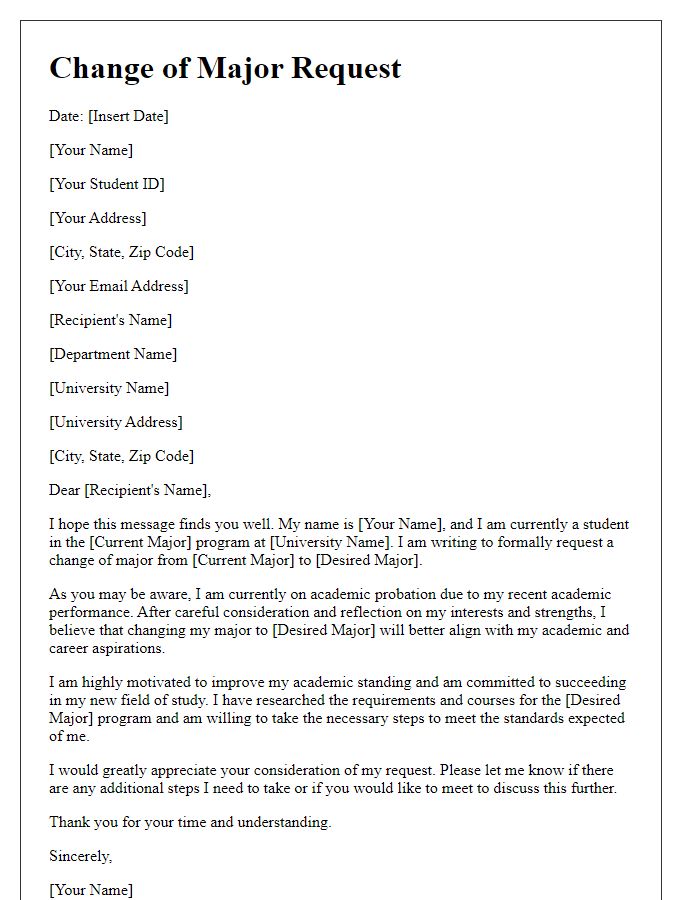

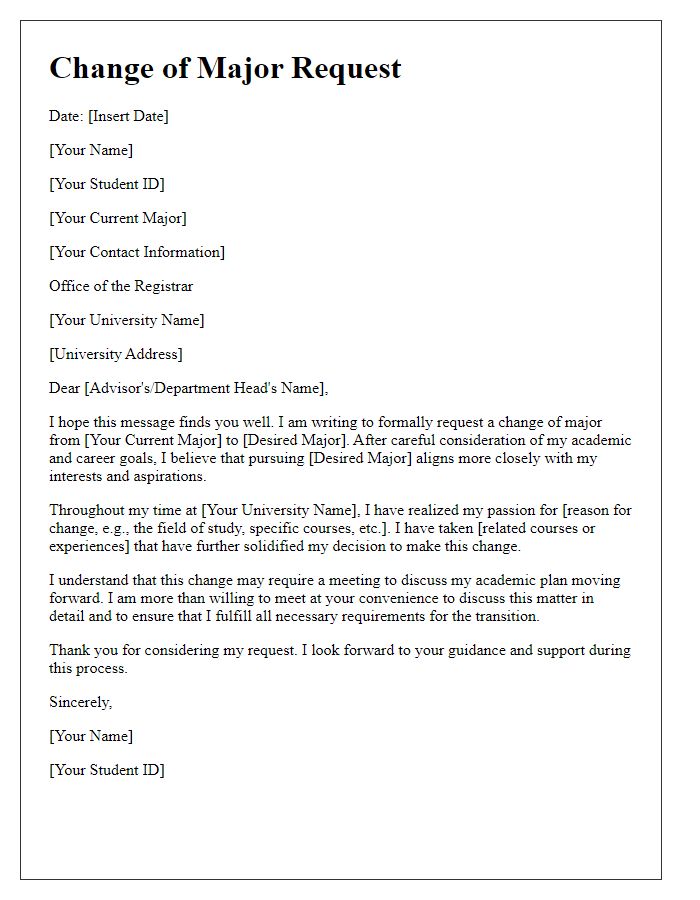
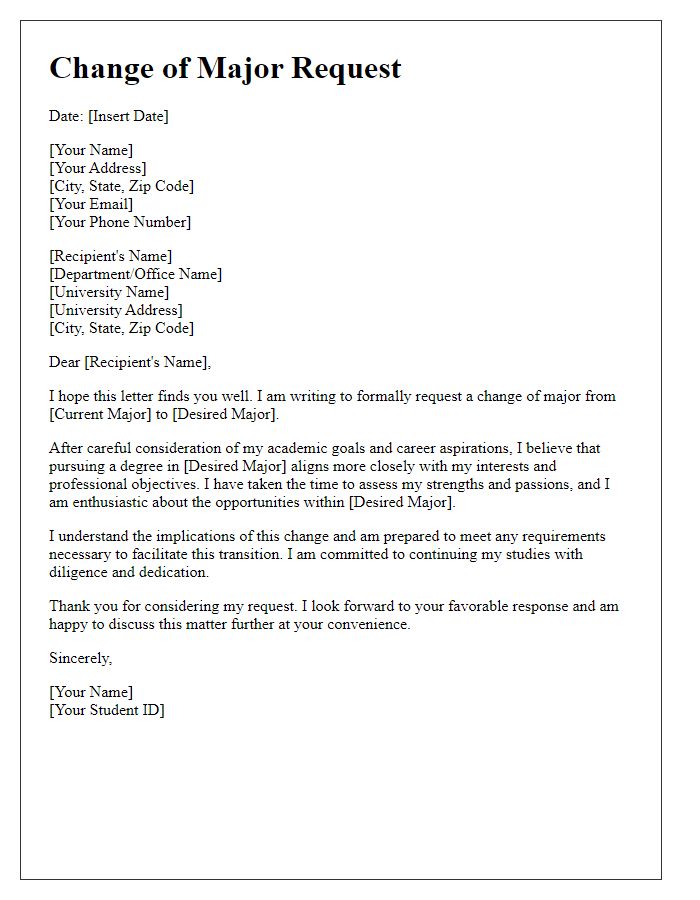
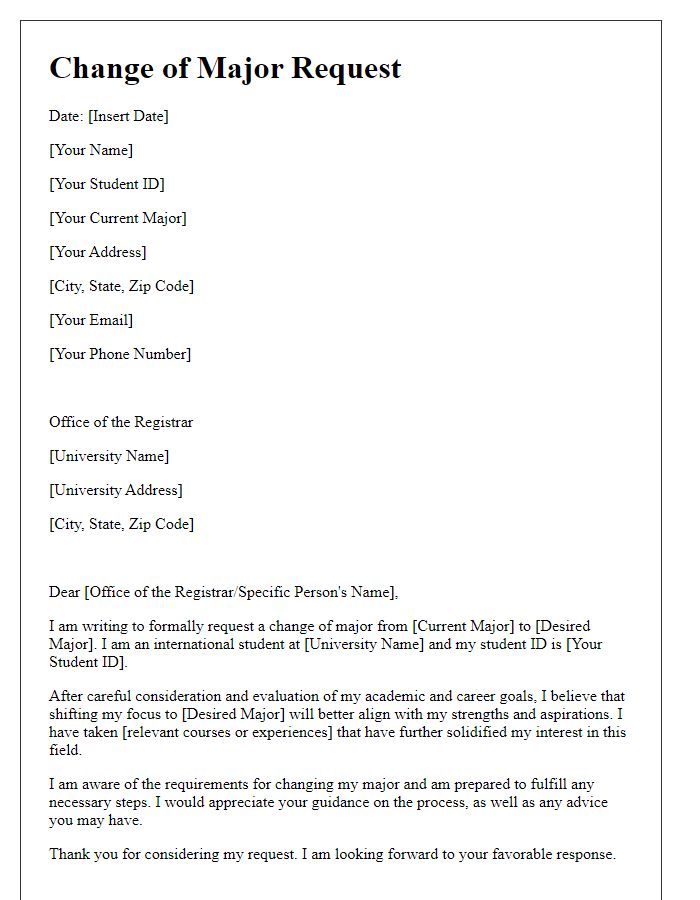
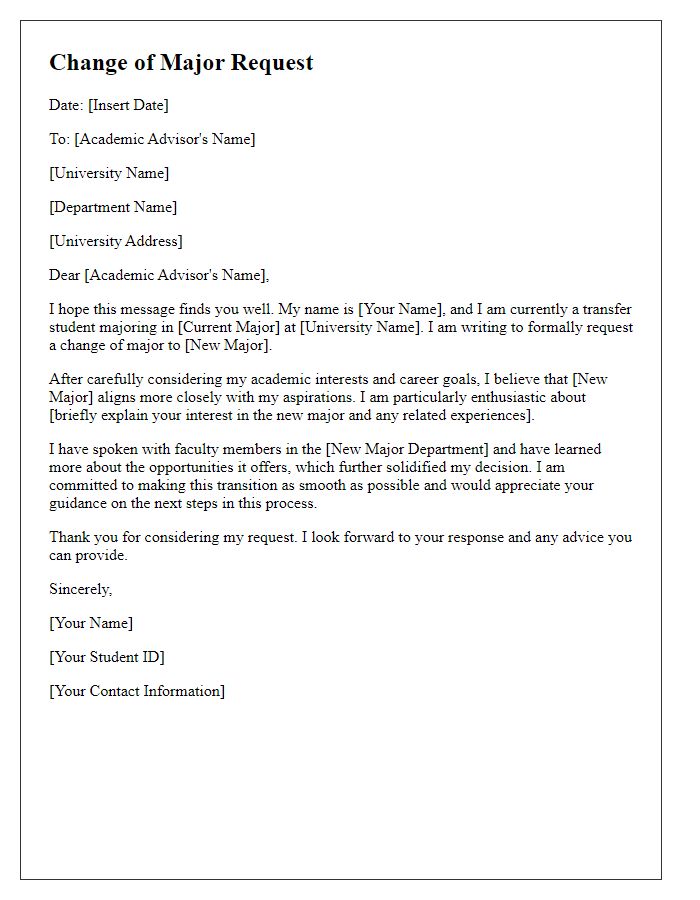
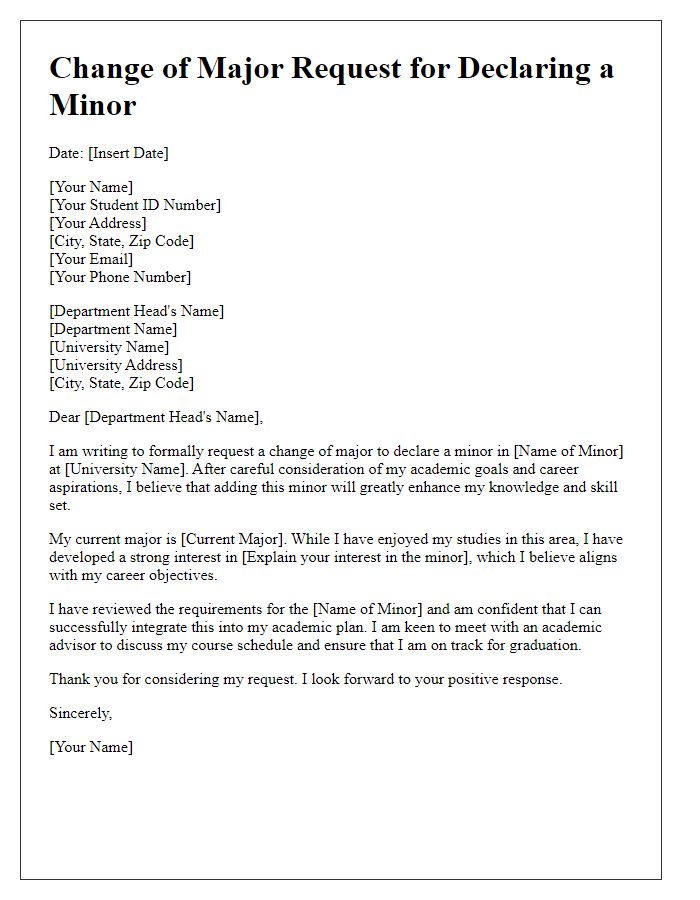
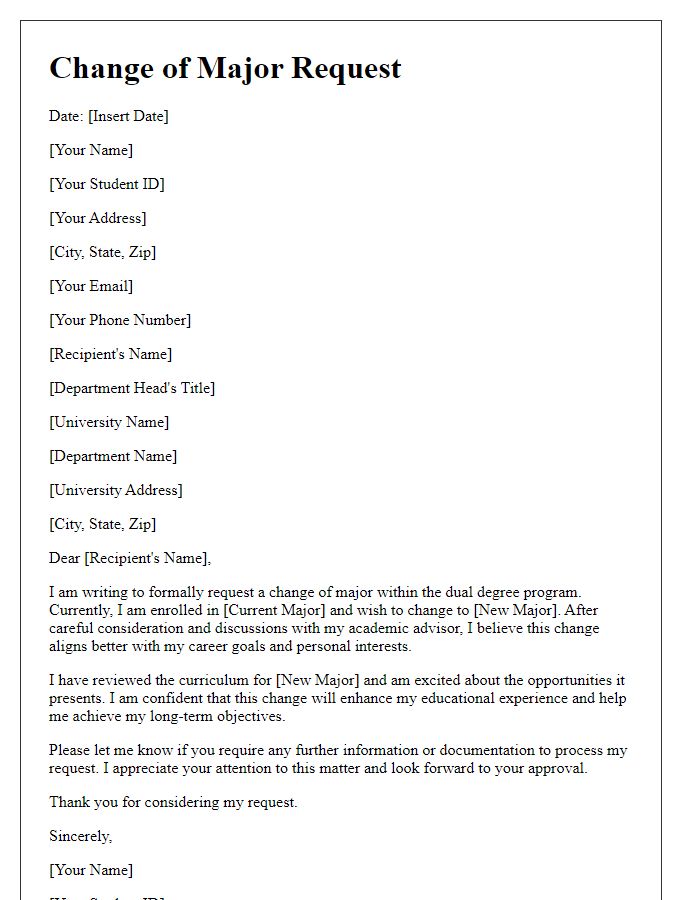
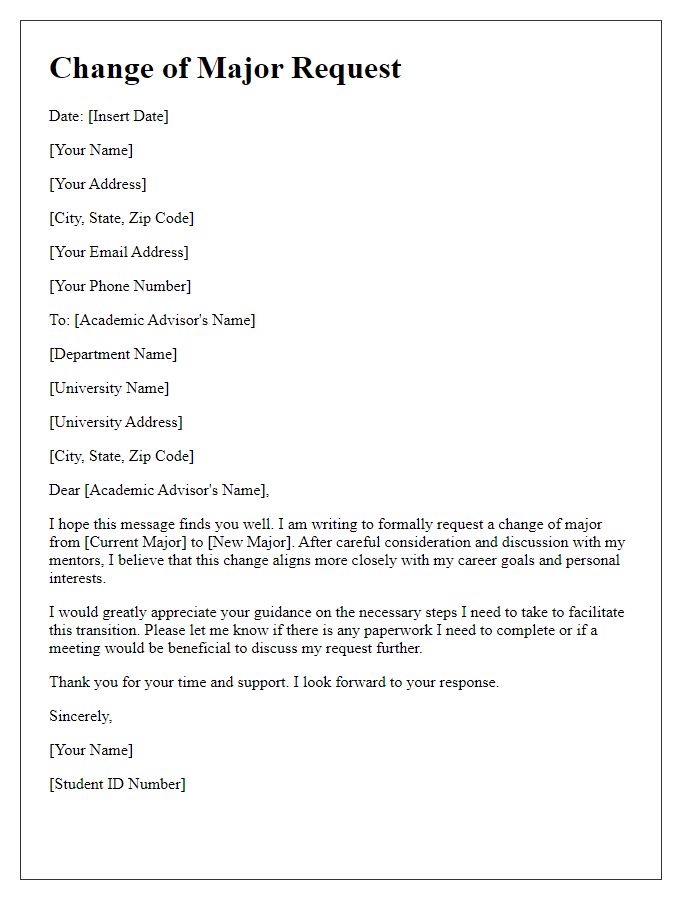
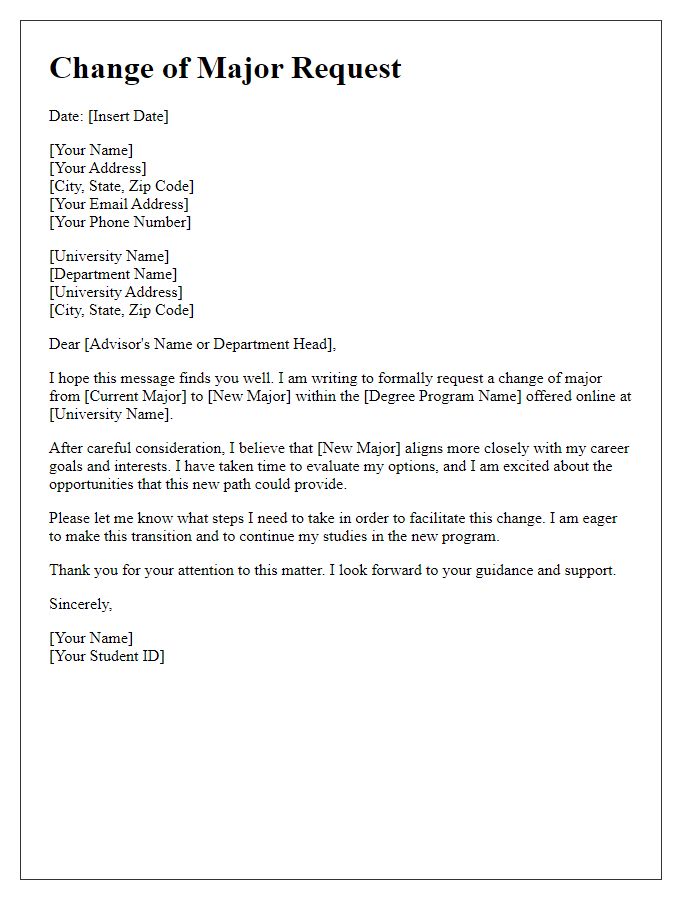
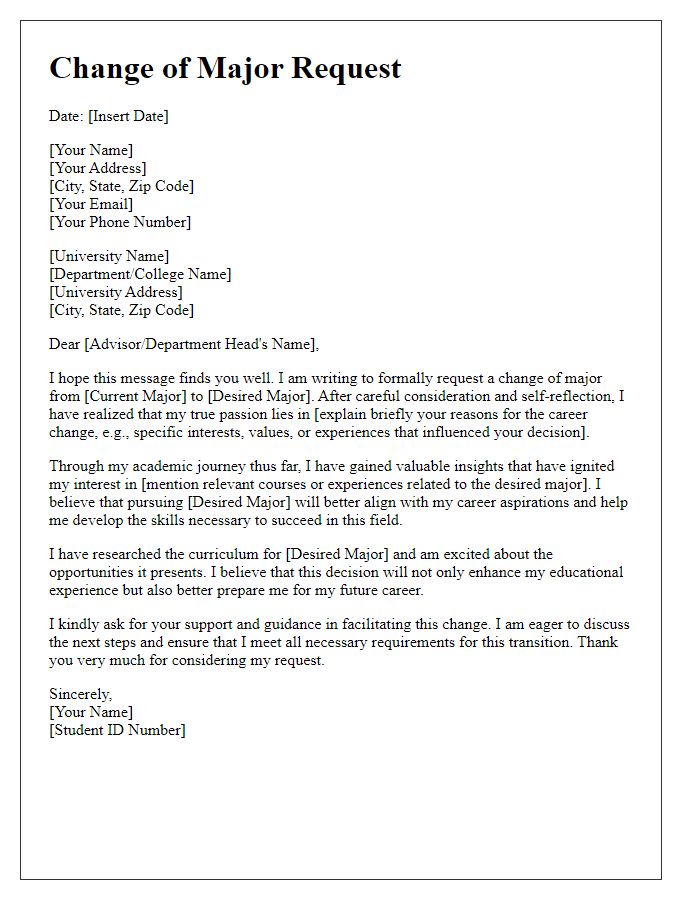


Comments